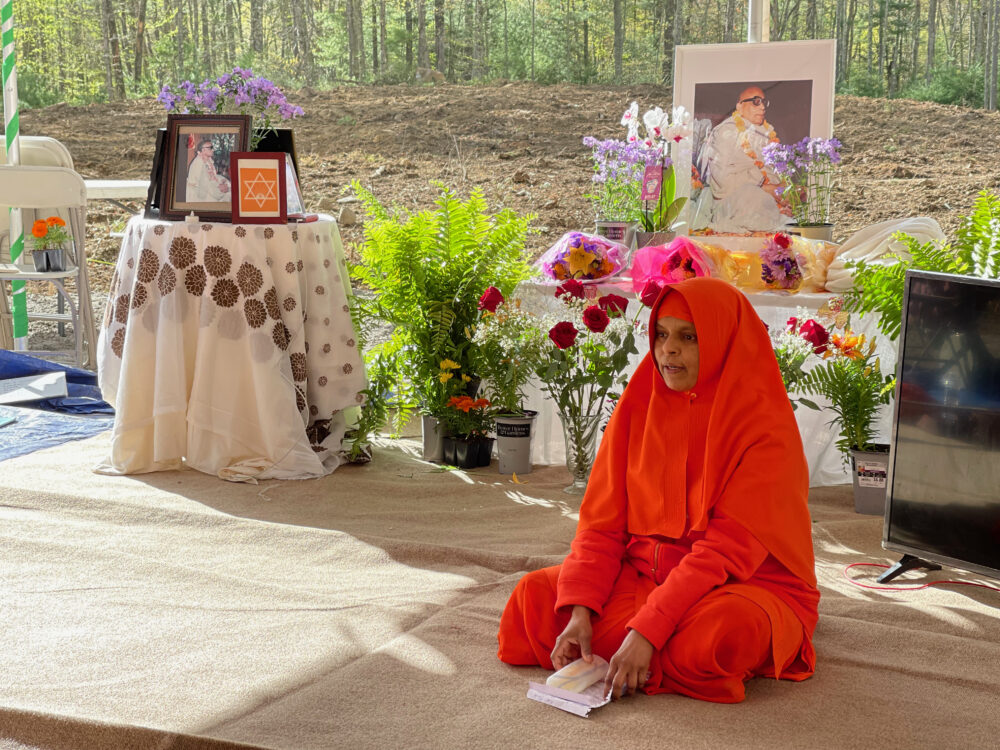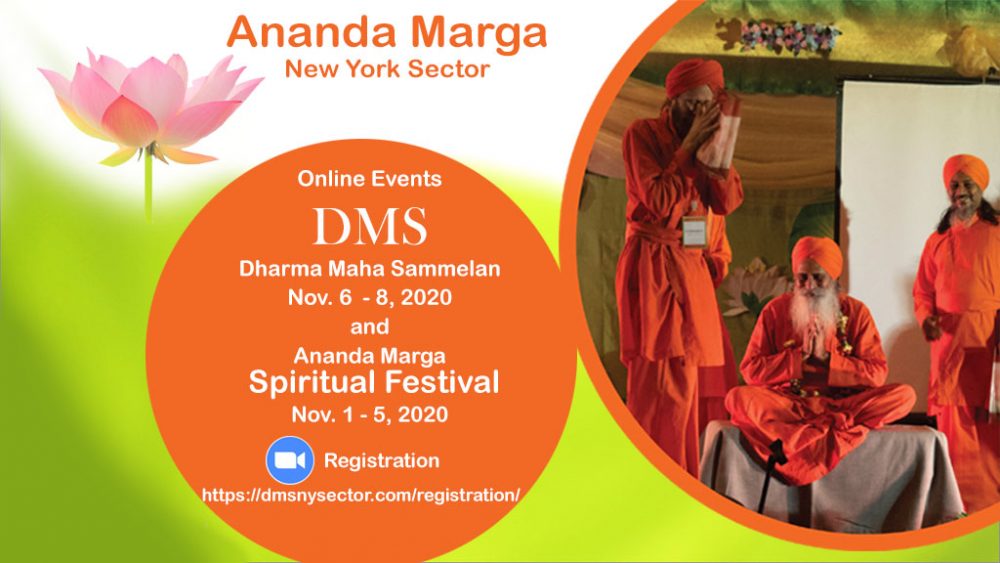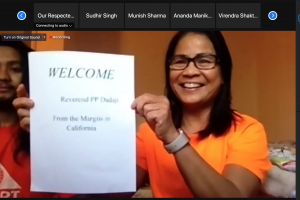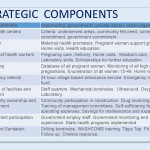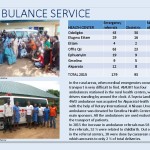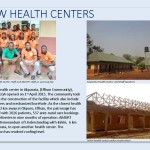AMURT in Nepal May 2017
Enterprising Women Tailors
The Pourakhi Tailoring shop is a new business in Khadichour market. It was opened in September 2016 by four enterprising women who were counseled by AMURT and who participated in AMURT’s 5-month tailoring training. The four women (Sangita Karki, Deo Kumari, Binda Budhathoki and Padam Kumari) each contributed NPR 20,000 ($200) to build their initial capital, while AMURT loaned them two sewing machines and one interlocking machine.

“We are hopeful,” says Binda Budhathoki. “From last month’s income we could pay two month’s rent.”
The women were greatly motivated by an exposure outing organized by AMURT to draw inspiration from other small women-managed enterprises that only succeeded after many initial struggles. They have since increased their capital, and diversified their business by stocking cosmetic items and fashionable dresses; and cushions and shopping bags made by themselves.
The women are highly skilled and have started to accept their own tailoring students. One of their students was so impressed with their abilities that she left her previous teacher to join them.
AMURT outreach staff report that their record keeping is excellent, certainly an outcome of the business management training provided by AMURT in September 2016.
Everyone is hoping that this courageous group of women will succeed, and serve as a good example to others of the enterprising spirit of women.
AMURT in Nepal May 2017
Seti Devi Sarada Secondary School: Improving the educational experience
In addition to supporting the post-earthquake repair and reconstruction of Setidevi Secondary School, AMURT helped improve the quality of education inside the classrooms.
The initial focus was to get the school facilities usable again, so AMURT rebuilt two steel structures (5 classrooms), 11 toilets and 6 washing areas.

Shanti Karki and her students at the book corner. The uses the books for reading and art.
Then AMURT focused on the learning experience itself. Shanti Karki, a Grade 2 teacher, benefited from one of AMURT’s book corners. “Before, my classroom was empty,” she said, “so the students didn’t want to stay there. But now the classroom is full of colorful books and reference material. Children love reading the books, so teaching is a lot easier.”
With access to so many interesting books, the students have improved their reading and imaginative skills. Many of them even stay after class to continue reading.
Shanta Karki adds,” In beginning, the students used to rip the books. But now they take care of them because they know their educational value..”
Setidevi is one of five schools provided with a reference library by AMURT, along with a teacher orientation to group learning to make the education less hierarchical. Now students work in peer groups to research key subject areas in the library.
Gunjana Shrestha, a Grade 9 student, is happy: “For the first time in my school life I can go to the library and research interesting topics.”

Finally, AMURT provided “educational walls” for the Grade 1 classroom. This includes wall painting that highlights basic items related to literacy and numeracy. Not only has this made the classroom more colorful and child friendly, but provides a constant reminder to the students of key lessons.
Grade 1 teacher, Kalyani Nepal, says,” The children love reading from the wall. For me, it has made teaching easier and more entertaining.”

G.C., Basudev, Setidevi’s head teacher, says the educational walls, book corners and libraries have helped the teachers cover all curriculum topics in a more interesting, effective and entertaining way.
AMURT in Nepal May 2017
Supporting women’s recovery after the earthquake
Following the 2015 earthquake in Nepal, AMURT engaged with the community to build stability and facilitate recovery. AMURT’s focus was on getting children back to school, and providing support to their mothers. Hence, AMURT has been providing skills and small enterprise training to 20 women’s groups in three communities in Sindupalchowk District. Most of the women participants are from low income backgrounds. With AMURT’s support, the women have started enterprises ranging from liquid soap making, to tailoring, to vegetable gardening.
Organic gardening
Forty-six women received a training in year-round organic vegetable gardening using low technology greenhouses (“tunnel gardens”). The training included a field trip to a government farm where the women learned about the need to grow local varieties of rice with organic inputs. Hybrid rice from India is destroying indigenous seeds and the soil, as it requires considerable chemical fertilizer. The women also learned about selling seeds and seedlings as opposed to the vegetables themselves, which is more profitable; and about producing cash crops such as ginger.
One of the more successful participants is Deu Kumari Sakya, who cultivates in two “tunnel gardens.” She has successfully transitioned to organic farming, using organic manure and natural pesticides to protect her crops. She is cultivating chili, cauliflower, tomatoes and cabbage in her newly prepared beds, and has started a nursery for growing seedlings.

Deo Kumari in her nursery
Cattle management
Many families in the area keep one or two cows for milk production for the home and for sale. AMURT trained fifty-nine women in better cattle management practices. Now they are collecting cow urine for making manure, paving the floor of their cattle sheds to improve cleanliness, and planting fodder grass to feed their animals in the dry season. AMURT provides ongoing technical support to the women through Mohan, a local vet, who has a strong sentiment for community development.
Tailoring
Fourteen of the tailors trained by AMURT have established home businesses with their own sewing machines. They are making clothes for themselves and family members, and are getting work from neighbors and other clients.
In September, 2016, four of the women opened a tailoring shop in Khadichour market with machines loaned to them by AMURT, and $800 capital raised by themselves. They are progressing well, and have even started their own tailoring training.

Microenterprise
One of the more successful enterprise supported by AMURT is Panchakanya Women’s Group in Tamche Village, who are making liquid soap. With training in business management and marketing, the women have developed a good product and strong markets.
AMURT provides ongoing consultancy services to the budding business women to enhance their chances of success. This is often in the form of a two-day program of SWOT (strength, weakness, opportunity and threat) analysis and action planning. While one group is being counseled for a half day, another group is observing to learn from their experience. This process enables each group to seek solutions for their own challenges, as well as learn from the experiences of others.

AMURT is helping some women get qualified as beauticians and hair stylists
AMURT in Nepal May 2017
NEPAL earthquake response
Rebuilding the school network in Sindupalchowk district
AMURT has been instrumental in normalizing school life for over a thousand students after the traumatizing 2015 earthquake. The initial focus was to make the schools useable again, so AMURT retrofitted 25 damaged classrooms, and rebuilt four new classrooms, in 13 schools. AMURT also collaborated with the schools to improve the classroom environment. AMURT improved the awareness of the students through an assortment of training sessions, the expressiveness of the students through educational theater, and the performance of the students through coaching and improved libraries. AMURT has helped the schools to “build back better.”

Kalika school soon after the 2015 earthquake, and newly renovated (below)

Promoting child rights
AMURT provided child rights training to 1180 children from nursery to Class 10 through child protection committees (started with AMURT’s support) and educational theater. The educational theater was particularly inspirational for the students, allowing them to express their key issues, namely child marriage, child labor, sexual abuse and corporal punishment, in a safe and supportive environment.
The skits are performed in the school compounds, with all the students and teachers in attendance. After the drama on corporal punishment at Kalika school, the teachers agreed that corporal punishment does not give a positive result for a student’s performance at school. The village Child Protection Committee was so impressed with the performance that they donated $100 to the students to enable them to purchase costumes and make up, and to travel to other schools to perform.
The educational theater program has served as a catalyst to bring key protection issues into public conversation and raise people’s awareness. It has also helped the younger children better understand protection issues through a medium that is more engaging than lecture.
The teachers said that the educational theater training gave a lot of confidence to the children, and even helped academic performance. Many of the training sessions emphasized student participation which enabled students to be bolder and more creative in expressing themselves. As one teacher in Kalika school noted, “The students have become more conscious about right and wrong, and now raise questions about the bad behavior of others, even us teachers.”

Educational theater in Kalika School, written and performed by the children.
Libraries and book corners
AMURT set up libraries in the five larger secondary schools (Rama, Kalika, Seti Devi, Jalpa, and Shanti Udaya), and provided a one-day training to 68 teachers on ways to use reference books to enhance classroom learning.
Now, teachers provide research questions to small groups of students to answer by exploring the books, and teachers conduct lessons in the library, such as Social Studies during which the children study the constitution of Nepal.
AMURT provided a training to teachers in all 13 schools on the creative utilization of the book corners, of which there are now 40 in Classes 1 to 5. The book corners are mini-libraries kept in the classrooms for the utilization of teachers and students both inside and outside teaching time.
With access to so many interesting books, the students have improved their reading and imaginative skills. Many of them even stay after class to continue reading.
Basic necessities
AMURT provided midday meals directly to the 13 schools for seven months, and then provided small grants to the school management committees for the same. This, along with the provision of school uniforms, enabled parents to use their precious resources to take care of other fundamental needs.
Coaching
At the request of teachers, AMURT provided coaching classes in English, Math and Science to 157 Class 10 students. Due to the earthquake, their studies had been affected and the teachers were concerned that the students would not pass the School Leaving Certificate (SLC). The students improved their competencies in each subject as a result of the coaching. The teachers of Rama High School said the coaching “saved” them. In the prior two years none of the Class 10 students had passed the SLC, putting Rama school at risk of being severely penalized by the government. However, after AMURT’s coaching four students passed!

AMURT provided many services to the children after the earthquake, including new uniforms and school lunch.
AMURT in Nepal May 2017
The Clean Profits of Liquid Soap

In June 2016, the fourteen members of the Panchakanya Women’s Group in Tamche Village, Attarpur VDC participated in a 2-day liquid soap making training organized by AMURT. They started to produce the liquid soap instantly after the training, and have been growing ever since.
Initially, they needed lots of guidance, which was willingly provided by the trainer and AMURT staff. They needed help sourcing used plastic bottles, printing labels, and buying raw materials. Gradually, they divided the various tasks amongst the group members, and operated accordingly.

Anjana and Goma pouring liquid soap in the retail bottles.



